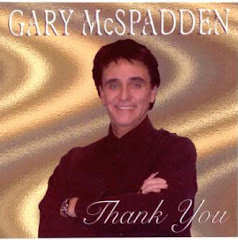Writer’s Digest has some strong words about using professional editors to make your work all it can be. The truth is that publishers are harder pressed than ever to fund their projects. If you bring them a proposal in ready to print condition, you likely get nearer the top of the pile.
Bring them one that isn’t and you go straight to the bottom and it’s a bottomless pit.
How to Save Time and Money with Professional Editors
Posted by Jane
This post has been adapted from material by Jim Adams, at his site Migdalin.com. I met the talented Jim this past weekend at the WD Editors' Intensive, and we discussed his passion for editor George H. Scithers.
http://blog.writersdigest.com/norules/2009/06/22/HowToSaveTimeAndMoneyWithProfessionalEditors.aspx
After 30 years of rejection, I finally got tired of not knowing why my writing wasn't working. Before trying to find a publisher or an agent, I sent the novel I'd just finished (or so I thought) off to a professional editor.
The year that followed was expensive (professional editors don't come cheap), but it also taught me things about plot, protagonist, pacing, and novel structure that I hadn't picked up from 15 credit hours of undergraduate creative writing courses, an M.A. in creative writing, and reading untold books on writing (some of them with titles like PLOT).
Professional editors are more efficient than how-to books. They give you feedback specific to your project. It's one thing to read a "rule" in a book, it's another thing to have an editor point to a spot in your opus and say, "Here's where you broke the rule, and here's how your writing was weakened as a result."
Professional editors can be more effective than a degree in creative writing, since half your time in getting that sort of degree will be in ancillary class work. Worse, unless you're careful and choosy, you could easily wind up (as I did) at a university where the creative writing teachers sneer at pedestrian concerns like plot. If you dream of getting an M.A. or M.F.A. in creative writing, you might consider finding a professional editor instead. Not only could you learn more in less time, the editorial route might even be less expensive (depending on the university you're applying to), especially if going back to school means giving up a decent-paying job.
As sold as I am on getting help from professional editors, though, when I started working on a new novel, I faced a real dilemma: an insufficiency of funds. Although I hope this new book will need less editorial hand-holding than the previous one, getting the full manuscript critiqued still represents a major expense.
Also, I never feel I've mastered something until I do it right three times in a row. As such, I still have doubts about my ability to spot major plot holes and plot sidetracks on my own.
My brilliant solution to this conundrum?
I sent my editor a detailed synopsis rather than a complete novel.
Getting a synopsis critiqued is not only less expensive, it can save you a lot of time. In my case, although I already had a complete draft of the novel written, revising generally takes me twice as long (at least) as writing the rough draft. Thus, by spotting major non sequiturs in the synopsis, my editor can save me from tweaking pages, chapters, or even (please God, not that again!) an entire book that needs to be tossed out and rewritten from scratch.
If you like to outline and plan books ahead of time, you could even save yourself time during the drafting stage by getting an editor to look at your story premise and outline straightaway.
While they might tell you things you don't want to hear (such as that your underlying story idea won't hold water), wouldn't you rather find that out before you've spent months or years of your life working on the thing?
Even getting a synopsis edited can cost $200 or more, but it's money well-spent, since this particular $200 could save me weeks, even months, of fruitless revision and polishing. Even better, it could save me several thousand dollars, compared to sending a full manuscript to my editor, only to find that my novel has major structural problems—problems that could have been fixed via a review of my story outline.
Wondering how to find a solid professional editor? Preditors and Editors is a good resource for checking out an editing service before you give them your money or your manuscript. I've been using The Editorial Department, and the editor they assigned me to (Peter Gelfan) is the greatest: cruel, insensitive, tactful, patient, and very insightful.
My first book is still making the rounds of agents and publishers, and may still wind up turning into a trunk novel. While I'm convinced it's technically solid, that isn't enough to make a book sell given the difficult publishing environment these days. But whether my first book makes it or not, I feel much better about what I'm doing. I no longer feel like I'm spinning my wheels fruitlessly, repeating the same mistakes over and over again without realizing it.
Overcome Your Challenges
6 hours ago








No comments:
Post a Comment